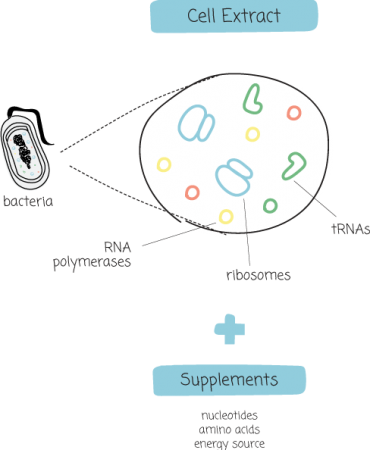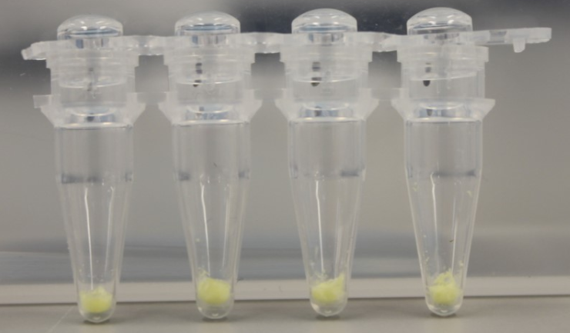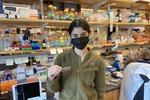BioBits is launching to space! So, what is it?
Genes in Space 2021 winner Selin Kocalar is launching her experiment to the ISS in just a few days. It will be the first to use BioBits cell-free gene expression technology in space. But... what is BioBits, exactly? We'll tell you all you need to know about this powerful tool.

BioBits is a cell-free gene expression system. What does that mean? Cell-free gene expression systems are ways of using biological machinery — in other words, cells' guts — to make any protein you want. In some cell-free systems, you literally use the guts of cells to do this: You put lots of bacterial cells in a blender to rupture their cell membranes, add some supplements, and voila: You've made a cell-free system.
Why would you want to make proteins? Lots of important things we use in daily life — some vaccines and medications, for example — are made from proteins. Proteins are also useful in research environments where they can be used as tools in biology experiments. Gene editing with CRISPR, for example, requires the use of Cas proteins.
Why not just make proteins with cells? Using cells to make proteins means you need to keep those cells alive. You need to keep the environment comfortable for the cells, and you need to feed them. This takes extra effort and specialized equipment. In a cell-free system, you cut the cells out of the equation and just make proteins directly, using the same parts (e.g., ribosomes, enzymes) that a cell would use to make them.
 Freeze-dried BioBits pellets (at bottom of each tube)
Freeze-dried BioBits pellets (at bottom of each tube)
What makes BioBits a good fit for a space experiment? Cell-free gene expression systems in general are a good fit for space; since they don't involve living cells, they don't require the specialized equipment you would use to keep cells alive, and they subsequently take up very little space. This is a good thing when you're on a small spacecraft. BioBits is especially well suited for space since it is a freeze-dried system, which makes it very stable at room temperature.
How will BioBits be used in the Genes in Space-9 experiment? Genes in Space-9 will use BioBits as a biosensor for water contaminants. Biosensors are biological systems engineered to “sense” certain molecules. In the presence of the water contaminant they were engineered to detect, the biosensors will produce a fluorescent protein that astronauts will be able to see using the Genes in Space fluorescence viewer.
How would biosensors be useful in spaceflight? There are so many possibilities! Imagine biosensors that tell you if lead is present in Martian soil, or biosensors embedded in flight suits that tell you if you're exposed to hazardous gases. The Genes in Space-9 experiment is just the beginning, and its success would open up these possibilities and many more.


